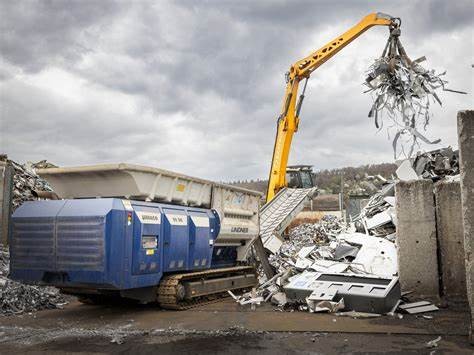In the world of metal recycling, efficiency and flexibility are key. Traditional stationary shredders have been the backbone of scrap processing operations, but mobile shredding equipment is rapidly transforming the industry. By bringing the shredder to the material rather than the other way around, businesses can streamline operations, reduce costs, and increase overall recycling efficiency.
1. On-Site Processing Reduces Transport Costs
Transporting large quantities of scrap metal to a fixed shredding facility can be expensive and logistically challenging. Mobile shredders eliminate this issue by enabling on-site processing, reducing transportation costs, and improving profitability.
2. Increased Operational Flexibility
Mobile shredders provide unmatched flexibility for metal recyclers, demolition contractors, and waste management firms. Whether dealing with scrap metal at a demolition site, an industrial facility, or a recycling yard, mobile units can be deployed where and when needed, optimising workflow and reducing downtime.
3. Faster Processing and Increased Throughput
With mobile shredding equipment, materials can be processed immediately upon collection. This eliminates delays associated with transporting and stockpiling scrap, resulting in a faster turnaround time and improved processing efficiency.
4. Enhanced Scrap Metal Value
Shredded metal is easier to sort and refine, increasing its market value. Recyclers can deliver higher-quality material to buyers by shredding metal on-site, maximising revenue potential.
5. Reduced Environmental Impact
Transporting scrap metal over long distances contributes to carbon emissions. Mobile shredding reduces the need for excessive transportation, lowering the overall environmental impact of recycling operations. Additionally, on-site processing minimises waste by transporting only shredded and sorted material.
6. Improved Safety and Compliance
Handling and transporting bulky scrap metal can pose safety risks. Mobile shredders improve safety by allowing operators to process materials at a controlled site, reducing handling hazards. Additionally, shredding on-site ensures compliance with waste management and environmental regulations, preventing illegal dumping or improper disposal.
Mobile shredding equipment is becoming a game-changer in the industry as demand for efficient and sustainable recycling solutions grows. Its ability to enhance flexibility, reduce costs, and increase efficiency makes it an invaluable asset for any metal recycling operation.
To find out how integrating mobile shredding into your business can optimise your operations and maximise your returns - Let's talk!

Scrap metal recycling is one of the most important processes in the circular economy, helping industries recover valuable materials while reducing environmental impact. But before metal can be melted down and repurposed, it must first be processed efficiently and that’s where industrial shredders play a crucial role.

Every year, over a billion tyres reach the end of their life. Discarded tyres take up massive landfill space, pose a serious fire hazard, and break down slowly, releasing toxic chemicals into the environment. But thanks to advanced industrial shredding technology, used tyres are no longer just wasted they’re valuable raw materials that can be transformed into a wide range of new products. In this article, we'll explore how shredded tyres are recycled and repurposed into useful, profitable, and sustainable solutions.

Investing in an industrial shredder is a crucial decision for businesses in waste management, recycling, manufacturing, and heavy industries. The right shredder can increase efficiency, reduce costs, and maximise material recovery, while the wrong choice could lead to downtime, inefficiencies, and unnecessary expenses. So, how do you choose the best industrial shredder for your needs? Here are the key considerations to keep in mind.